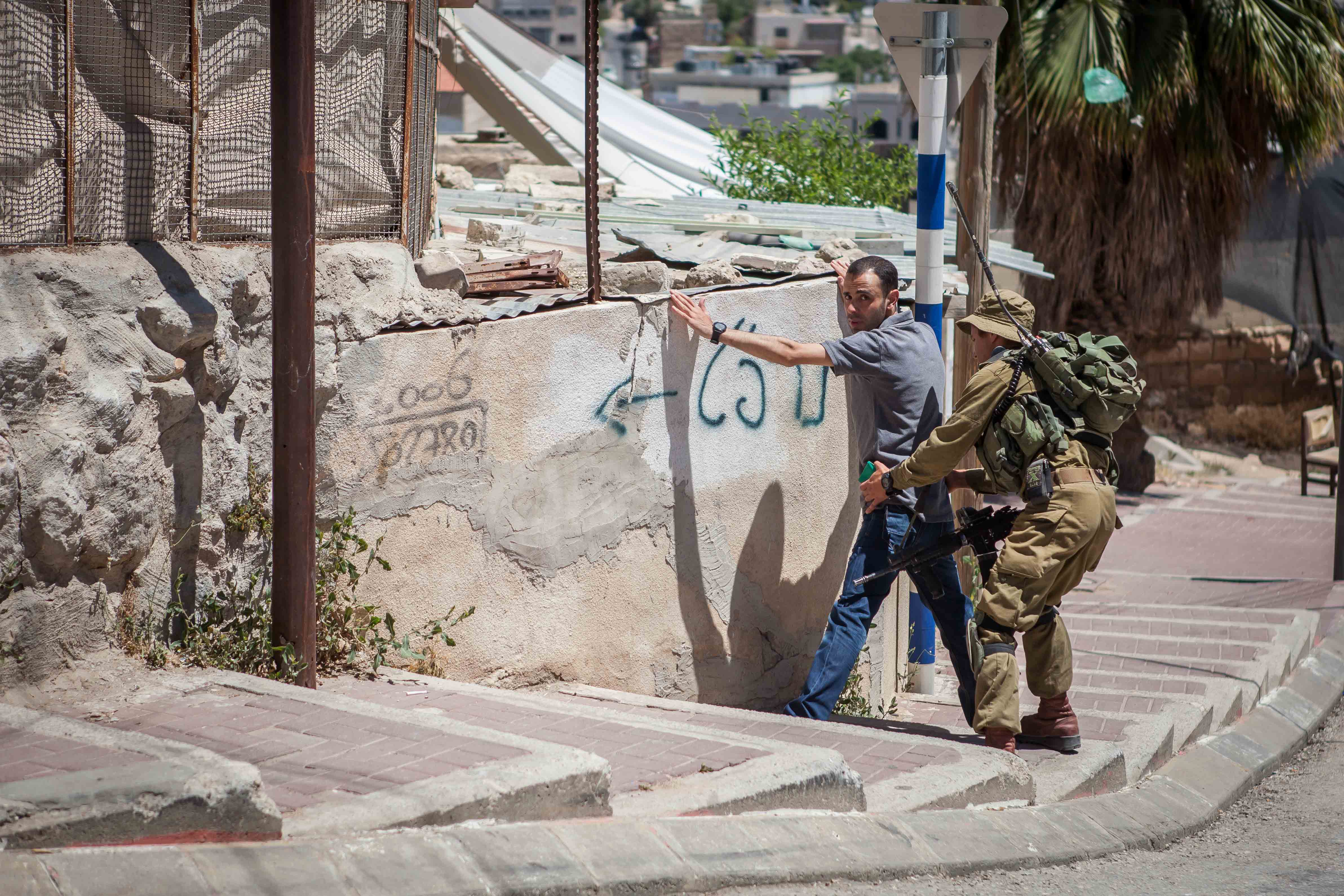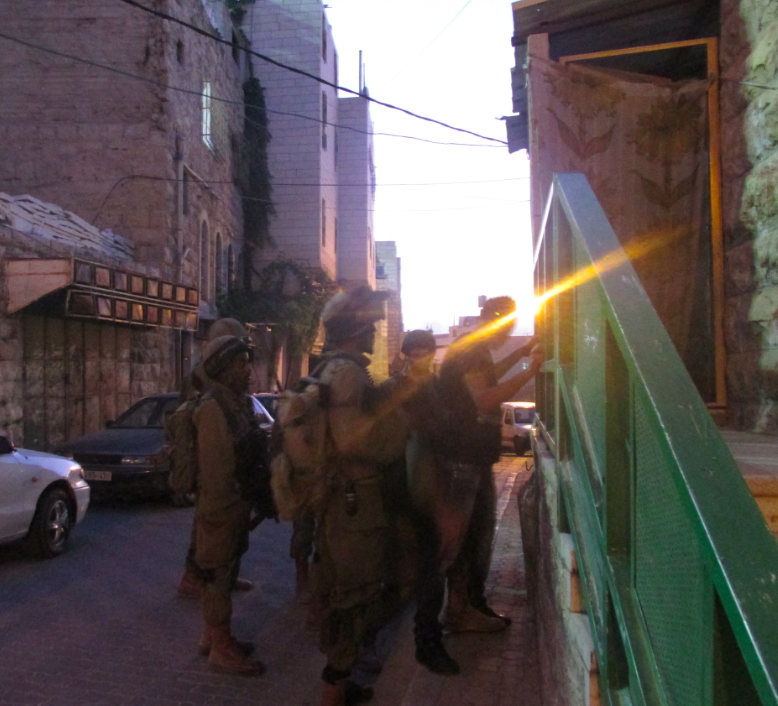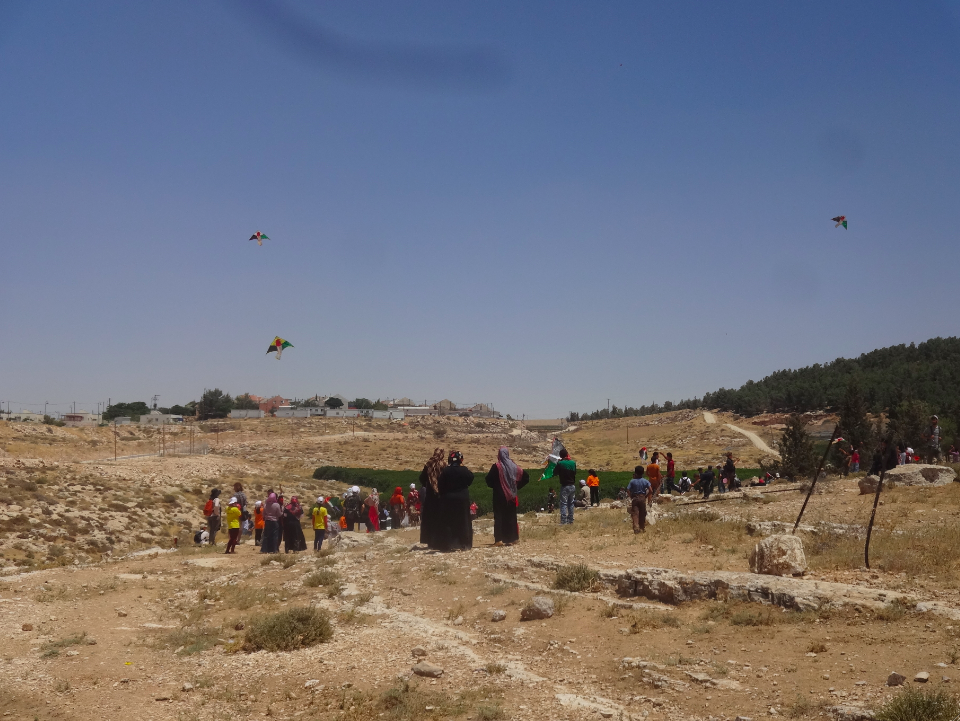Tag: Settlers
-
VIDEO: Israeli soldiers and settlers attack Palestinians and ISM volunteers in Hebron
2nd July 2014 | International Solidarity Movement, Khalil Team | Tel Rumeida, Occupied Palestine For the past two days in al-Khalil (Hebron) Israeli soldiers have stopped and searched many Palestinians in Tel Rumeida. At approximately 22:00 two nights ago, a colonial settler began aggressively photographing Palestinian children who were playing football in the street on Tel Rumeida hill. Two ISM activists began…
-
Collective punishment in Palestine
22nd June 2014 | International Solidarity Movement| Occupied Palestine On Thursday 12th of this month, three settler youth disappeared while hitchhiking in the Hebron area of the West Bank. No Palestinian group or organisation has taken responsibility for the disappearance. 15-year-old Mohammad Dudeen was murdered in the early hours of Friday morning (20th) after he was…
-
Seventh festival of South Hebron Hills popular resistance
21st June 2014 | International Solidarity Movement, Khalil Team | At Tuwani, Occupied Palestine Today in the village of At Tuwani, villages and popular committees in the South Hebron Hills and international activists, came together to celebrate the seventh festival of non-violent resistance in this area of the West Bank, and the end of a local children’s summer…



